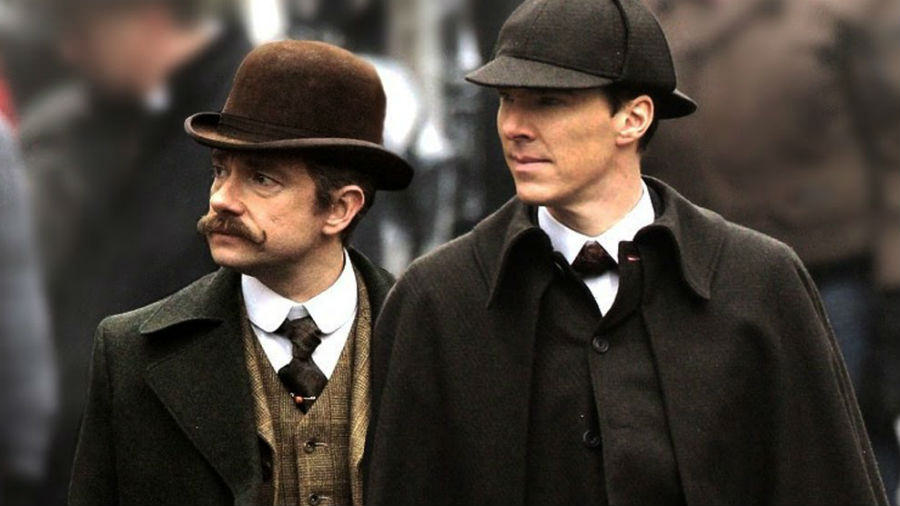Sherlock continues to combine the rapid pace of an action film with the complexity of a novel, while simultaneously defying the principle that television shows wind down the moment a main character has a baby.
After the arduous wait that followed the cliffhanger conclusion of the previous season, season four of Sherlock opens with a quote that unites Sherlock’s (played by Benedict Cumberbatch) sentiments with the audience: “I always know when the game is on… because I love it.” The show threatens to slow with the sleepy wedding highlights early on in season three, only to be reawakened with a tactful dose of history, a strong injection of feminism, a heavy draught of psychology… and now this, the new season premiere.
Amid a hectic array of cases linked by subtle threads, the episode is united by a haunting theme: expectations. Sherlock and Mycroft (played by Mark Gatiss) reference mathematical probabilities over and over; Sherlock suggests that the future would be entirely predictable if one manages to follow the “thread” of every single individual’s life and understand how the billions of threads are woven together. As the episode progresses, this concept appears increasingly idealistic as shocking surprises upset perceived “threads.”
The finale of season three revived the most prevalent question of the entire series — the question of how anything and everything may be Moriarty’s (played by Andrew Scott) handiwork — and therefore cements the primary expectation of the new season. This expectation haunts Sherlock and threatens to critically impair his judgement: an overconfidence that ultimately breeds doubt. The result is a continual struggle to separate facts from premonitions and sentiments — categories that were distinct when the series began and have become increasingly blurred as Sherlock has progressed.
Therefore, it is only natural for personal and professional lives to merge as the new episode delves into Mrs. Watson’s violent past as an “agent.” Just when the audience expects new insight into Moriarty’s complex web, an entirely new web of complexity begins to emerge.
If any expectation is not offset, it is the prevalence of the most common trend among intelligent characters and mystery series: the gradual transition from case-focused episodes and logic-driven characters to something more dramatic, more layered, more emotional: the fragile relationships among returning characters grow vastly in importance relative to the mysteries. Sherlock himself is becoming more emotional, no matter how hard he tries to deny or disguise it.
In production style, Sherlock continues to converge with the style of recent James Bond films: the number of action scenes has increased exponentially, and the focus has shifted from solving London crimes to tracking down known villain-masterminds who lead threatening criminal networks. Season four’s premiere indicates that Sherlock will continue on this trend of assimilation, as formerly complex questions of “how” and “why” dwindle down into “who will we meet at gunpoint, and where?”
Ultimately, intense questioning and investigation gives way to utter intrigue and sentiment for the trying lives of the characters, giving birth to a question that transcends all of Sherlock’s cases in its continuity and complexity: will John Watson (played by Martin Freeman) ever find peace and happiness, or at least respite from the traumas of his life? By the end of the episode, Moriarty is nearly — but not quite — forgotten, and the final impression is purely emotional, void of the rationality that one may have struggled to maintain.




